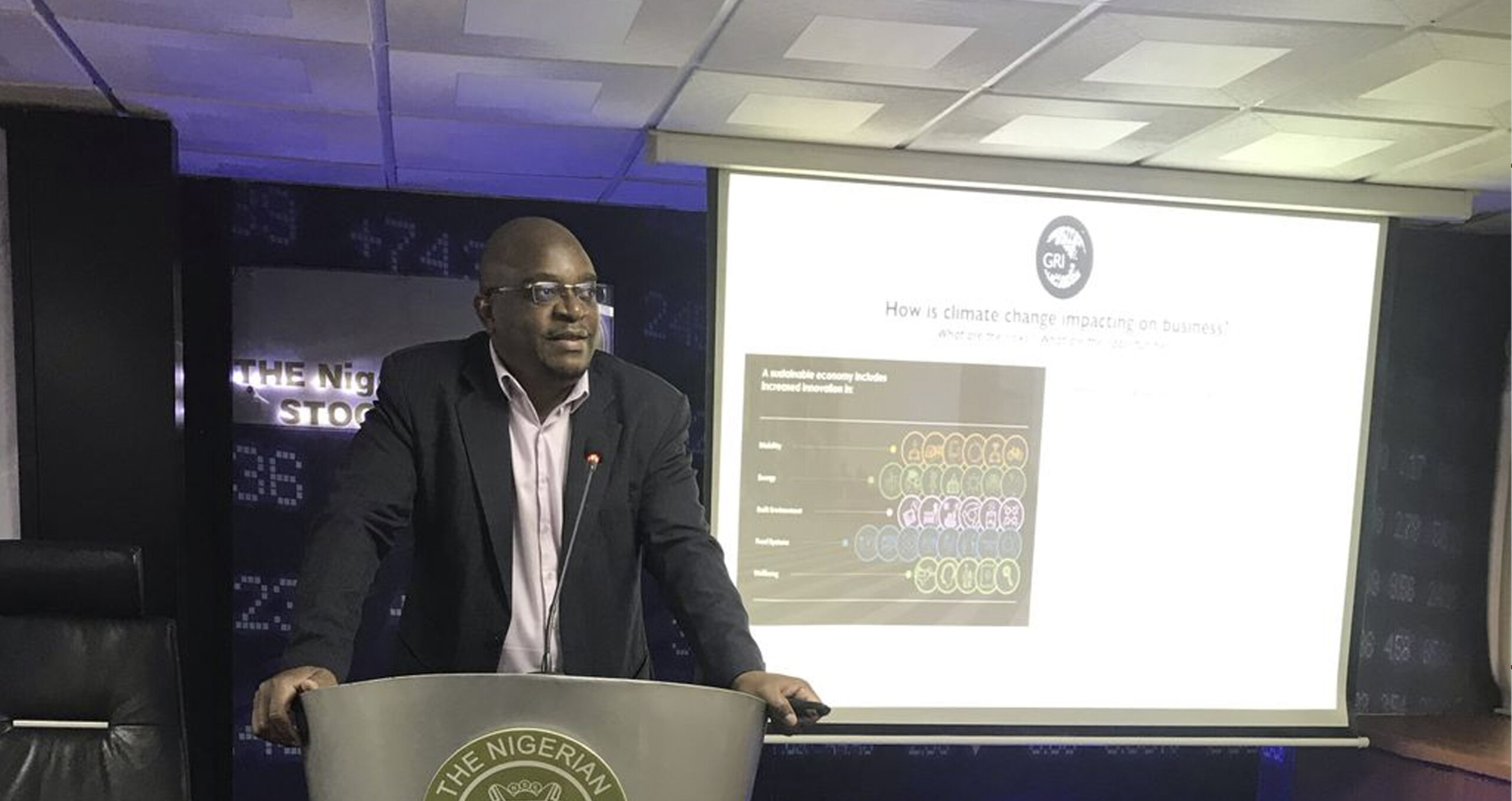

Sustainability reporting is gaining ground in Africa, thanks to the work of GRI and its new reporting manuals.
Efforts by the Amsterdam-based Global Reporting Initiative to increase corporate sustainability reporting in Africa are bearing fruit with both the Nigerian Stock Exchange and the Ghana Stock Exchange launching ESG disclosure manuals last month.
The GRI helps companies report on their environmental, social and economic impacts in a common language, aiding the standardisation of reporting.
Speaking to Sustainable Views, Douglas Kativu (pictured), director of GRI Africa, said the initiative started looking at this across Africa in 2019, using South Africa as a model. Its Johannesburg Stock Exchange has been involved in ESG and sustainability since 2002, and all listed companies must do ESG reporting on a ‘comply or explain’ basis.
GRI has been working on ESG reporting with Nigeria’s, Ghana’s, Nairobi’s, Eswatini’s and Mauritius’s stock exchanges. The latter has launched a sustainability index in recent months, Kativu noted.
In Nigeria, a drive by the banking sector on sustainability has prompted action on ESG reporting, Kativu added, with the launch of ESG principles which require banks to report on the sustainability of their lending to issuers.
Kativu said the Nigerian Stock Exchange has started stakeholder engagement on bringing sustainability reporting into its capital markets, in a joint effort with consultancy EY and the GRI. “I’d say there was significant buy-in from the leadership on some of these issues, in terms of positioning the capital markets to the international community, to enhance their competitiveness, and also help change the narrative about the country and build trust.”
He also said there was awareness that some of the listed multinational enterprises were already doing some level of sustainability reporting, but other listings were pretty much new to sustainability reporting. So, a manual was launched to help companies at different levels.
Tinuade Awe, CEO of NGX RegCo, part of the Nigerian Exchange Group, which owns the listing venue, commented on the importance of sustainability reporting on November 17, at a training event on its ESG reporting manual. “From the business perspective, companies are increasingly becoming aware of the benefits associated with incorporating ESG frameworks into business operations, including strengthening corporate reputation, mitigating operational risks, attracting sustainable investors and generating long-term value,” she said.
She added that there were already companies listed on the “premium board” of the stock exchange “who have shown commitment to consistent sustainability reporting and ESG compliance. At NGX [RegCo], we continue to encourage listed companies to follow best practices and guidelines across every facet of their operations, in our bid to further drive compliance and proper governance in the Nigerian capital market.”
Similar efforts are happening with stock exchanges in Nairobi, Ghana and Eswatini. Ghana launched its ESG reporting manual on November 2.
GRI Africa has also developed a partnership with the African Securities Exchanges Association. It is working with exchanges and has plans for media outreach on ESG reporting for journalists across Africa, and will also be working to update its ESG reporting guidance in light of work by the International Sustainability Standards Board, said Kativu.
Image via Nigerian Exchange Group
Similar Articles

In Charts: Politicians not providing enough clarity on green policy, say UK businesses

UK government may lack data to monitor biodiversity net gain policy, warns watchdog


